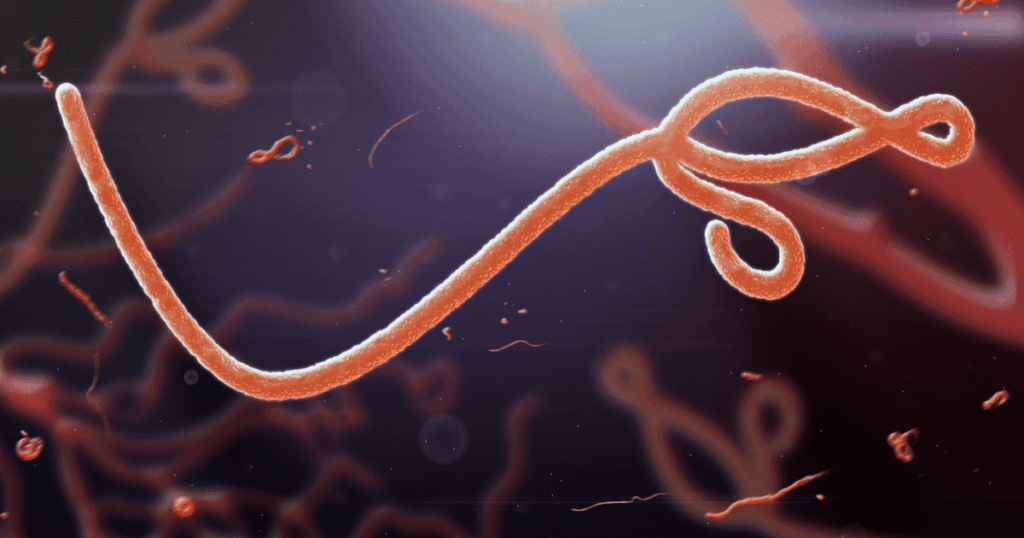What Is Ebola — and How Does It Affect Your Body?
In 1976, researchers first identified a frightening virus that had emerged in the African nation then known as Zaire. While the source of this fast-moving, destructive disease remains unknown, Ebola is believed to have spread to humans from apes, monkeys and bats. There have been several Ebola outbreaks since 1976, primarily in African countries, though the disease has been found in animals originating from Asia as well.
More recently, the most consequential outbreak became a worldwide epidemic: Beginning in Guinea in 2013, the disease spread to other West African countries and later Europe, the United Kingdom and the United States. In the period of two and a half years, Ebola was responsible for killing more than 11,000 people.
In this article, we explore the devastating effects of the Ebola virus on the human body, tracing its progression from initial symptoms to immune system disruption and organ failure.
What Is Ebola?
Ebola is a severe and often fatal disease caused by the Ebola virus. Viewed through a microscope, Ebola looks somewhat like a worm that’s knotted and looped at one end. Like many diseases, it may not be easily recognized by its symptoms, since it shares early symptoms common in many other diseases, including those that indicate a far less serious condition. These symptoms may appear up to three weeks after exposure to the virus and include:
- Fever
- Sore throat
- Aches
- Fatigue
- Vomiting
- Diarrhea
- Unusual bruising
- Bleeding from multiple orifices

How Is Ebola Transmitted?
Humans can contract the virus through contact with infected animal blood and tissue, often via hunting and eating carriers of the disease or being bitten by one of them. The infected individual may then expose others to the disease through their bodily fluids, which can enter the body through a wound, the mucous membranes of the face, or intimate contact. Even a person who has died from Ebola can remain contagious, so their bodies must be handled with care.
What Does Ebola Do Once Inside the Body?
Ebola immediately attacks the immune system that was designed to fight it, leaving immune cells unresponsive, then rapidly replicates itself and spreads through the bloodstream. Other infected immune cells throughout the body cause clots that rob organs of essential blood. The virus does some of its most catastrophic damage by inhibiting plasma production, though other organs and systems are also impacted as the disease makes its way through the body.
Many patients die from Ebola: up to 90%, with an average of 50%. Having quality medical care and a strong immune system can increase one’s odds of recovery. End-stage symptoms may include brain inflammation and organ failure. Medical experts believe that Ebola survivors may develop some immunity, as antibodies stay in their blood for up to a decade.
Discover How Disease and Other Factors Affect Our Body Systems
As you’ve seen, Ebola can wreak havoc throughout the body, impacting many organs and often resulting in death. The University of Florida is proud to offer several entirely online Master of Science programs that provide different perspectives on the body systems, their organs and factors that can affect them. Some of them include:
Master of Science in Medical Sciences with a concentration in Medical Physiology and Pharmacology
Acquire a comprehensive scientific understanding of key human body systems, delve into the effects of drugs on living organisms at cellular and molecular tiers, and explore both normal and abnormal conditions in human body systems. Finish this 30-credit degree program in as little as two semesters.
Master of Science in Medical Sciences with a concentration in Medical Physiology and Aging
Develop a more expansive and profound understanding of the biological processes associated with aging. Finish this 30-credit degree program in as little as one year.
Bring the benefits of a master’s degree in medical physiology to your career!
Sources:
https://time.com/3502740/ebola-virus-1976/
https://www.itg.be/en/health-stories/impact-stories/the-discovery-of-and-research-on-the-ebola-virus



